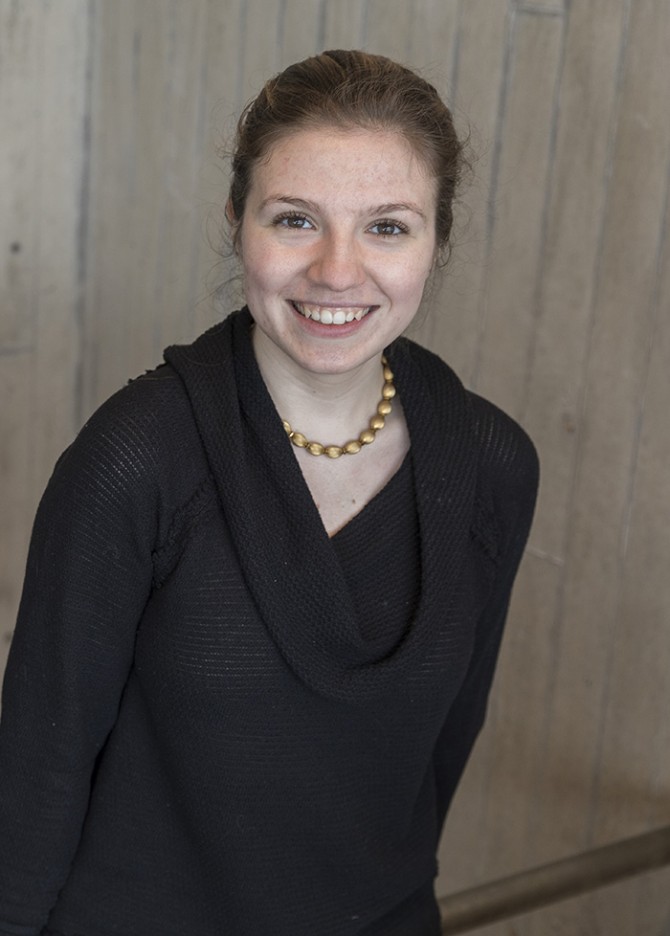College Scholars explore Japanese cultural property to tech design
By Agnes Shin
Eighteen students from the Class of 2020 have been selected as the new class of College Scholars for the College of Arts and Sciences.
The College Scholar program allows students to design their own interdisciplinary majors, which typically focus on a range of topics and disciplines. The new class’ projects range from food policy and identity politics to questions in theoretical physics and linguistic analysis.
Scott Partington ’20 is conducting research on smartphone design. Partington, a College Scholar and psychology major, will analyze 21st-century technology design at the intersection of social psychology, behavioral economics, and moral and political philosophy. He hopes to find out how smartphone users make decisions and develop preferences and values, and how smartphone technologies can be redesigned to align our behaviors with our goals.
Partington found his passion after taking introductory classes in design, cognitive science, social psychology, philosophy and computer science. “Someone told me to take a lot of intro classes – you’ll figure out what you like and don’t like,” he said. “I ended up liking everything I took.”
In the College Scholar program, students have the flexibility to integrate related disciplines from a broader perspective or to focus on a narrow topic in an interdisciplinary field. They work with their advisers to select coursework and complete an honors thesis or senior project.
Rebecca N. Clark ’20, a double major in Asian studies and College Scholar, is studying the development, identification and protection of Japanese cultural property. Her research focuses on disciplines including anthropology, religious studies, art history and Asian studies, and explores the relationship between cultural identities and the designation of artifacts/art as cultural property in Japan.
She is studying how developments in history, religion and philosophy line up with ideas of culture within various groups in Japan, its government and its diaspora and how these views influence what is viewed as “important cultural property.”
Clark had considered majoring in Asian studies, international studies or political science. That all changed when she took Introduction to Japan with Professor Jane-Marie Law and learned about Zen Buddhism and Japanese arts. “Listening to her lecture about the aesthetics and the art … the light clicked,” Clark said. “I wanted to make my college career one where I could specialize in Japanese art.”
Law is Clark’s adviser for the College Scholar program. Clark says she acts as her adviser and her mentor. “She was so openly passionate about what she did, and so knowledgeable and engaging. She made me want to do something I loved that much.”
Clark said that her favorite part of the program is the potential you have to develop your own ideas/thesis. “There is a limitless potential of what you can do,” she said.
Class of 2020 College Scholars and projects:
- Damon Bogetti: World Making and Breaking in Modern National Consciousness;
- Sourabh Chakraborty: Understanding how people develop and change their beliefs;
- Kyla Chasalow: Human data and the history and sociology of statistics and data collection;
- Jaia Clingham-David: The Politics of Food Choice: How Food Policy and Identity Politics Shape What We Eat;
- Graham Cohen: Bringing computational linguistic tools to the analysis of Spanish;
- Jack Cook: Developing a model for olfactory sensory processing and integration;
- Peter Glass: The roots and implications of nationalism;
- Jacob Hawkes: Examining the roles stories play in the formation of individual subjectivities;
- Leo Levy: Understanding the relationship between art and politics through historical, theoretical and textual analysis:
- So Jeong Lim: The role of visual language in transmitting trauma across cultural and linguistic barriers:
- Daniel Longenecker: Theoretical physics and physics pedagogy;
- Adam Masters: Analyzing the socioeconomic impacts of artificial intelligence;
- Cynthia Shen: Technological innovation and the evolution of medicine and the healthcare system;
- Sarah Skrutskie: The relationship between image and story;
- John Yoon: Analyzing communication technologies and the conceptual relationship between medium and discourse, and;
- Tianyi Zhang: Intelligence Science: Analyzing human intelligence and artificial intelligence.
Agnes Shin is a communications assistant for the College of Arts and Sciences.
Media Contact
Get Cornell news delivered right to your inbox.
Subscribe

